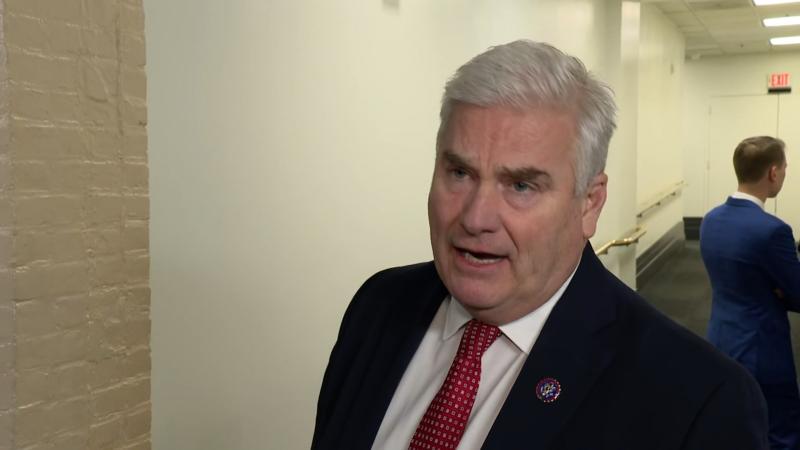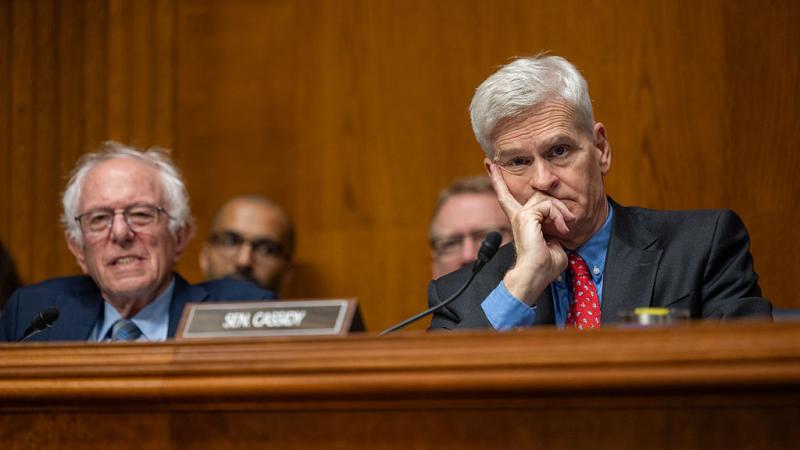HHS has spent at least $5.7 billion since 2013 on unnecessary inpatient rehabilitation stays
The original report documenting the issue topped this year's list of the OIG's most significant 'Unimplemented Recommendations.'
The Golden Horseshoe is a weekly designation from Just the News intended to highlight egregious examples of wasteful taxpayer spending by the government. The ward is named for the horseshoe-shaped toilet seats for military airplanes that cost the Pentagon a whopping $640 each back in the 1980s.
This week, our award is going to the Department of Health and Human Services for failing to implement suggested changes that have cost taxpayers at least $5.7 billion since 2013 — and likely much more — in expenses that are "not reasonable and necessary" on in-patient rehabilitation facility stays.
This month, the HHS Office of the Inspector General released its annual "Top Unimplemented Recommendations: Solutions to Reduce Fraud, Waste, and Abuse in HHS Programs" report. Per its title, the report reviews the top 25 unimplemented recommendations from the OIG that "would most positively affect HHS programs in terms of cost savings, program effectiveness and efficiency, and public health and safety."
Included on this year's list is a 2018 report that documents a widespread pattern of patients inappropriately admitted to rehabilitation facilities, costing the Americans taxpayers at least $5.7 billion of medicare funds.
In-patient rehabilitation hospitals or facilities, referred to in the report as IRFs, provide intensive rehabilitation therapy to patients with high-intensity needs, who often require specific nursing and medical management to oversee their recovery. In order for medicare to appropriately cover the costs of a patient's stay at an IRF, there must be a medically documented record stating that the stay was "reasonable and necessary for diagnosing or treating illness or injury or for improving the functioning of a malformed body member," according to the report's section on what constitutes reasonable and necessary care.
If a patient is admitted to an IRF without meeting the Medicare system's standard for reasonable and necessary care, "no medicare payment may be made."
During an audit of the calendar year 2013, the HHS OIG inspected $6.75 billion in Medicare payments to more than 1,100 IRFs accounting for 370,872 in-patient stays. They selected for review a "stratified random sample of 220 [IRF stays] totaling $11,277,251 for stays at 164 IRFs," said the report.
What the OIG found was that for those 220 stays, only 45 of them met Medicare standards. For the other 175 stays, the report found that "medical record documentation did not support that IRF care was reasonable and necessary in accordance with Medicare coverage and documentation requirements."
In order to justify a Medicare-covered IRF stay, a patient must require a rehabilitation program that necessitates intensive oversight from a highly trained medical team of rehabilitation physicians. What the report found, instead, was that most patients admitted to IRFs only required therapy that would "consist of general exercises and regular activities, such as walking." Other patients would have required no more than "nonskilled caregivers ... to provide needed assistance with only intermittent skilled therapy oversight."
The OIG report cited two key reasons for the persistent problems with Medicare's IRF coverage. First, most facilities did not have adequate internal oversight practices to "prevent inappropriate admissions." (Despite the Centers for Medicare and Medicaid Services' "extensive education efforts," it has been unable to control the increasing rate of improper payment associated with unnecessary IRF stays, and the rate of improper payment has increased annually since 2013, climbing by as much as 62% in 2016, according to the report.) Second, IRFs often failed to "align costs with payments," which put them in situations where they may have been motivated to admit patients inappropriately and unnecessarily.
On the basis of its sample review, the OIG estimated that "Medicare paid IRFs nationwide $5.7 billion for care to beneficiaries that was not reasonable and necessary." That multibillion-dollar figure accounts for 84% of the spending covered in the OIG's review.
The inspectors looked exclusively at data from 2013, which was the most recently available year at the time of the review, so the spending wasted on improper IRF admissions from 2014 until 2018, when the report came out, would likely have multiplied several-fold. And given the report's placement on this year's unimplemented recommendations list, that waste has continued for at least another two calendar years.















